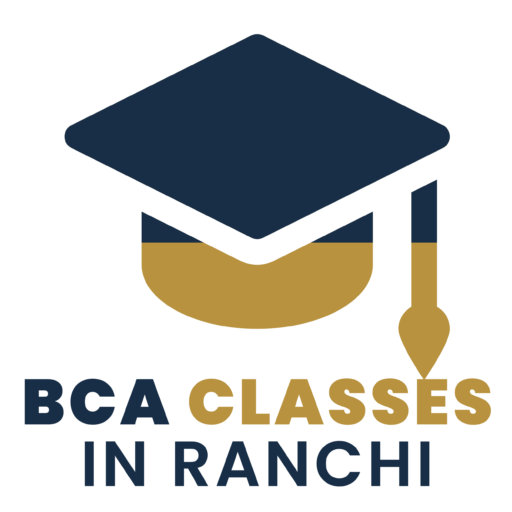Understanding Blockchain Technology
Blockchain technology, fundamentally, is a decentralized digital ledger system that records transactions across numerous computers in a way that ensures the recorded information cannot be altered retroactively without the alteration of all subsequent blocks and the consensus of the network. This characteristic is vital for ensuring data integrity and security, making blockchain a revolutionary technology in numerous sectors.
One of the primary components of blockchain is decentralization. Unlike traditional databases controlled by a central authority, blockchain operates on a peer-to-peer network where each participant has access to the entire ledger. This not only enhances security but also reduces the likelihood of a single point of failure. The transparency offered by blockchain is another key characteristic; every participant in the network can view the ledger, fostering trust and accountability among users. Furthermore, the use of cryptographic techniques ensures the immutability of the data, meaning once a transaction is recorded, it cannot be changed or deleted, thereby preventing fraud.
There are several types of blockchains, which cater to different needs and applications. Public blockchains, such as Bitcoin and Ethereum, are open to anyone and are typically used for cryptocurrency transactions. In contrast, private blockchains are restricted to specific participants, making them more suitable for organizations that require confidentiality. Consortium blockchains fall somewhere in between; they are governed by a group of organizations, allowing for greater control while still facilitating collaboration within a defined group. This diversity in blockchain types illustrates its versatility and potential applications across different industries, from finance to supply chain management.
By comprehensively understanding the fundamental concepts and functionalities of blockchain technology, BCA students will be better equipped to explore its transformative capabilities in various fields. This foundational knowledge is crucial as they prepare to enter a technology-driven world where blockchain continues to play a pivotal role.
Relevance of Blockchain in Today’s Job Market
The emergence of blockchain technology has significantly transformed numerous industries, creating a pressing demand for skilled professionals adept in its applications. For BCA students, this presents a remarkable opportunity to capitalize on a growing job market. Not only does blockchain offer innovative solutions in data management, but it also introduces new paradigms in cybersecurity, transparency, and operational efficiency, making it highly sought after by employers across various sectors.
The rising interest in cryptocurrency and decentralized finance has further fueled the need for blockchain expertise. Career opportunities for BCA graduates are diverse, including roles such as blockchain developers, where individuals can design and implement blockchain-based solutions; smart contract programmers, responsible for writing self-executing contracts; and consultants, who provide strategic advice on blockchain integration. These positions are available in a range of industries, including finance, healthcare, supply chain management, and even governance, illustrating the versatility of blockchain skills.
Additionally, numerous successful companies are already leveraging the advantages of blockchain technology to enhance their operations. Firms like IBM, Microsoft, and Accenture are investing heavily in blockchain solutions, thus creating a plethora of job opportunities for talented individuals in this domain. Startups are also emerging, focusing on niche applications of blockchain, which further contributes to the overall job market expansion. By gaining knowledge and skills in blockchain technology, BCA students can prepare themselves for lucrative and fulfilling careers that are not only aligned with current market demands but also poised for future growth.
In conclusion, the relevance of blockchain in today’s job market cannot be overstated, making it essential for BCA students to consider enhancing their skill sets in this dynamic field. As the industry continues to evolve, those equipped with blockchain expertise will undoubtedly find themselves at the forefront of innovation and professional opportunities.

Advantages of Learning Blockchain for BCA Students
Learning blockchain technology presents several key advantages for students pursuing a Bachelor of Computer Applications (BCA). Primarily, it enhances their technical skills, as blockchain is not only a cutting-edge technology but also a fundamental innovation poised to revolutionize various industries. Understanding the underlying principles of blockchain, such as decentralization, cryptography, and consensus mechanisms, allows BCA students to grasp the complexities of modern digital applications and infrastructure. This knowledge is essential for anyone intending to build a career in software development, data management, or cybersecurity.
More
Moreover, possessing blockchain expertise significantly improves employability. The demand for skilled professionals in blockchain technology continues to rise across sectors like finance, healthcare, and supply chain management. Employers are increasingly seeking candidates who can integrate blockchain solutions into their business models. By acquiring these skills, BCA students position themselves favorably in a competitive job market. Furthermore, the ability to innovate with blockchain opens doors for students to contribute to pioneering projects that address real-world problems, thus enhancing their professional profiles.
Another compelling advantage of learning blockchain is the opportunity to work on interdisciplinary projects. Blockchain technology intersects with various fields, including finance, law, and technology. This convergence allows students to engage in holistic projects that integrate multiple domains, thereby broadening their perspectives and skill sets. For instance, understanding the legal implications of smart contracts or the financial operations of cryptocurrencies can enrich a BCA student’s academic experience.
Lastly, engaging in blockchain-related extracurricular activities, such as hackathons and seminars, provides practical experience and networking opportunities. These platforms enable students to collaborate with peers, industry experts, and innovators, fostering a culture of continuous learning and engagement. This involvement can be instrumental in developing not just technical abilities, but also soft skills such as teamwork and problem-solving. Through these diverse channels, BCA students can become well-rounded professionals poised to succeed in an evolving technological landscape.
Getting Started with Blockchain Education
Blockchain technology is rapidly transforming various sectors, making it crucial for students, especially those pursuing a Bachelor in Computer Applications (BCA), to gain a comprehensive understanding of its principles and applications. To initiate this educational journey, BCA students can explore a variety of online courses tailored to different skill levels. Platforms like Coursera, edX, and Udacity offer specialized blockchain courses that range from introductory material to advanced programming and smart contract development. These courses often feature renowned instructors and provide a blend of theoretical knowledge and practical applications, allowing students to learn at their own pace.
In addition to online courses, certifications can significantly enhance a student’s credentials. Programs such as the Blockchain Developer Certification from the Blockchain Council or the Certified Blockchain Professional (CBP) credential can provide BCA students with formal recognition of their expertise. These certifications not only deepen understanding but also make candidates more attractive to potential employers in the tech industry.
Reading material is also important for a well-rounded foundation in blockchain. Books such as “Mastering Bitcoin” by Andreas M. Antonopoulos, and “Blockchain Basics” by Daniel Drescher offer insights into the inner workings of blockchain technology and its implications. Such resources can be instrumental in grasping complex concepts and staying updated on industry trends.
Conclusion
Networking within the blockchain community can significantly enhance students’ educational journey. Attending meetups, webinars, and conferences provides opportunities to connect with industry professionals and like-minded peers. Engaging with online forums, such as those found on LinkedIn and Reddit, can facilitate discussions and offer insights into practical applications of blockchain, as well as emerging career opportunities. Taking these actionable steps can help BCA students not only deepen their knowledge but also position them strategically for success in their future careers.
Read Our Latest Blog
Understanding Firewalls and Their Role in Network Security
Phone Number: +91-7488456170
Email ID: abhishek@eepl.me
Our Platforms:
Digilearn Cloud
EEPL Test
Live Emancipation
Follow Us on Social Media:
Instagram – EEPL Classroom
Facebook – EEPL Classroom
Stay connected and keep learning with EEPL Classroom !








